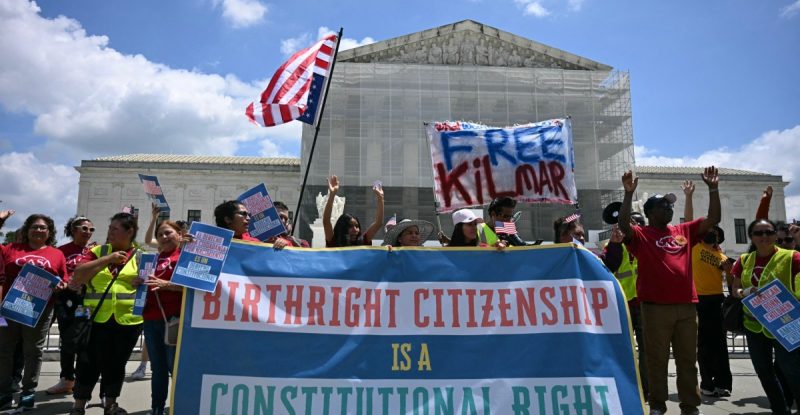
The question of birthright citizenship in the United States, enshrined in the 14th Amendment, has become a recurring flashpoint in American political discourse. While the amendment itself is clear – stating that all persons born or naturalized in the United States and subject to its jurisdiction are citizens – its interpretation and potential repeal have been subjects of intense debate, particularly during the Trump administration and its aftermath.
The core contention often revolves around the phrase ‘subject to its jurisdiction’. Conservatives have argued that this clause allows for exceptions, potentially excluding children born to undocumented immigrants. This interpretation directly challenges the longstanding understanding of birthright citizenship and has fueled repeated calls for its elimination or modification.
During his presidency, Donald Trump frequently voiced his opposition to birthright citizenship, labeling it a ‘magnet’ for illegal immigration. While he faced significant legal and political hurdles in attempting to alter or abolish the practice, his rhetoric significantly impacted public perception and fostered a climate of uncertainty around the issue.
The legal challenges to birthright citizenship are complex and multifaceted. Any attempt to alter the 14th Amendment would require a constitutional amendment, a process fraught with political difficulty and requiring supermajorities in both houses of Congress and ratification by three-quarters of the states. Furthermore, numerous court cases have upheld the principle of birthright citizenship, reinforcing its legal standing.
Despite the legal precedents, the ongoing political debate surrounding birthright citizenship highlights the deep divisions within American society regarding immigration and the very definition of citizenship. The future of birthright citizenship remains uncertain, contingent on the ongoing political climate and the willingness of future administrations and legislative bodies to challenge established legal interpretations. The issue’s significance extends beyond legal technicalities; it speaks to fundamental questions about national identity, inclusivity, and the meaning of belonging in the United States.










